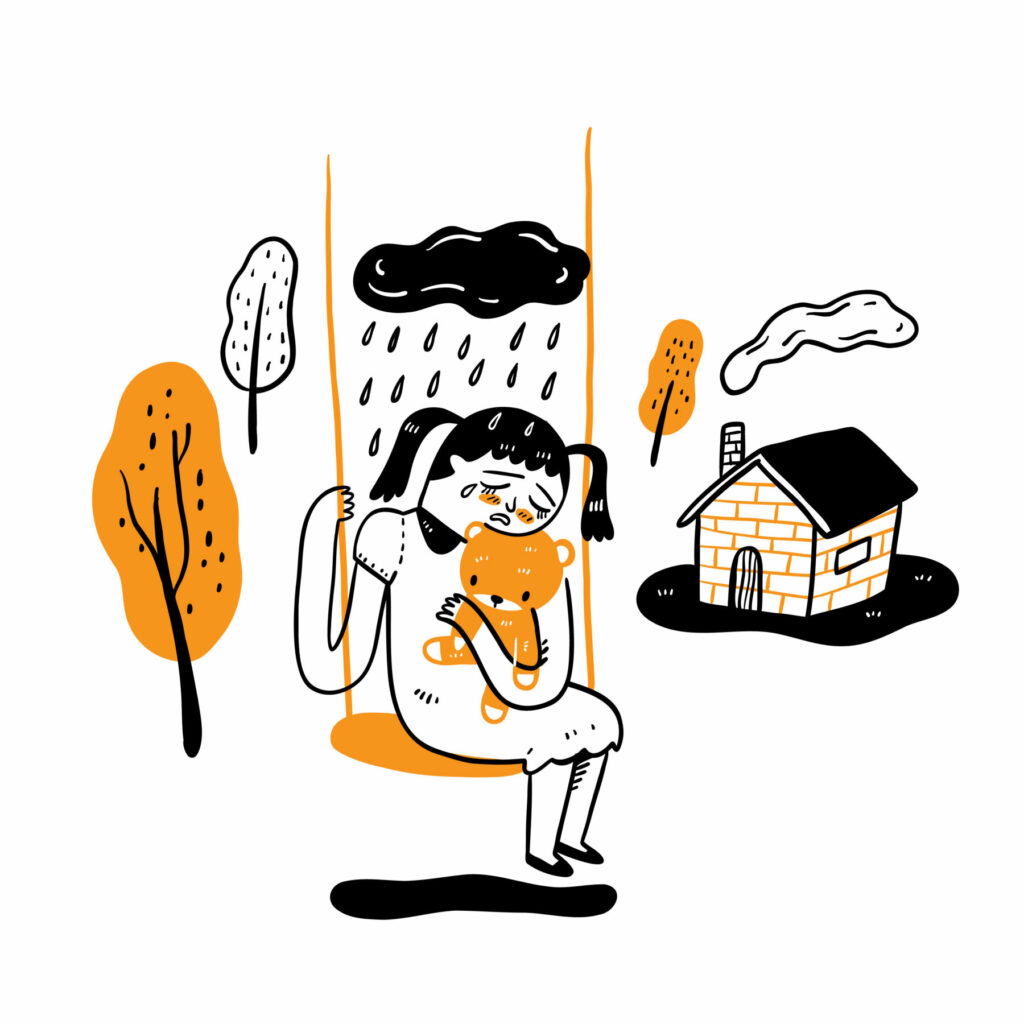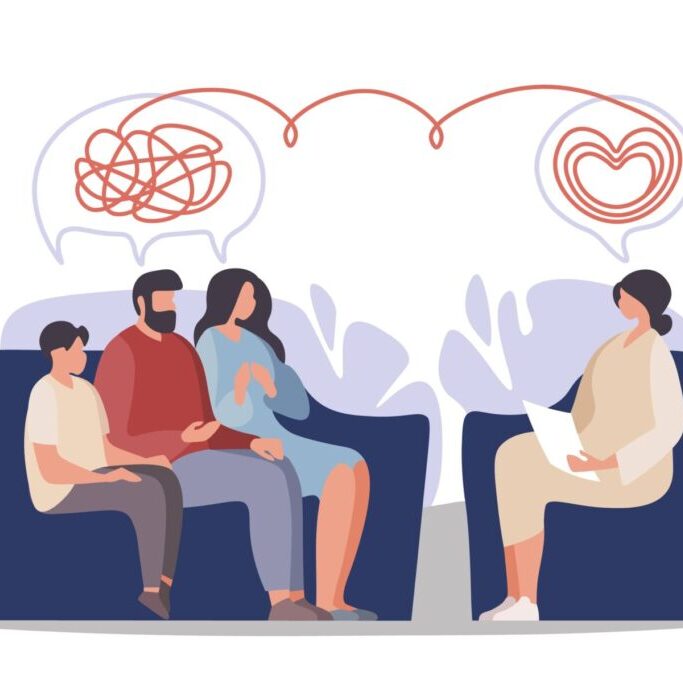Impacts of Childhood Trauma on Adult Mental Health

Childhood trauma is often a misunderstood experience. When many people in Chicago hear the word trauma, they associate it with gun violence, car accidents, or war. While these Chicagoans are correct in recognizing the traumatic effect these events can have, these types of trauma are actually less common than many of the experiences that a trauma therapist likely encounters regularly.
A research team led by Corina Benjet (2016) found that approximately 70% of adults have experienced trauma at some point in their lives. While trauma can result from any event that poses a threat to a person’s physical, emotional, or psychological well-being, it is not usually caused by a single incident, but instead, more commonly caused by repeated, long-term experiences.
Are children impacted differently by traumatic events?
Children are particularly susceptible to the impact of trauma due to the plasticity of their developing brains and their reliance on their environment for emotional and cognitive growth. A child’s environment plays a significant role in shaping brain development and can either support or hinder growth, depending on the level of stress they experience. While some stress is necessary for the development of important neural connections, extreme or prolonged stress (as is the case in neglectful or otherwise trauma-inducing situations) can disrupt normal brain function by releasing stress hormones that weaken immune function, memory formation, learning, and emotional regulation.
Further, the prefrontal cortex, which is responsible for higher cortical thinking such as reasoning, language, and awareness, continues to develop well into the mid-20s. When we experience trauma as children, it is processed differently than in adulthood. Instead of being processed by the prefrontal cortex, trauma is processed from the “bottom” of the brain, which includes the sensory system, limbic system, and peripheral nervous system. This means that the trauma is experienced and stored based on sensory input rather than being cognitively processed. This can make it difficult for survivors of childhood trauma to acknowledge and understand the impact of the trauma, as the part of the brain responsible for language and awareness was not fully developed at the time of the traumatic event.
If a child’s environment is perceived as unsafe or threatened, they may develop adaptive behaviors such as increased reactivity to stimuli, vulnerability, and attachment problems, and neediness. If a child does not receive proper emotional support following a traumatic event, it can also disrupt normal brain development and lead to issues with emotional regulation and problems responding to stress in adulthood.
How do you know if you are experiencing symptoms of childhood trauma?
In our practice, individuals often seek treatment from a trauma therapist for unmanageable anxiety symptoms, depression, mood dysregulation, attentional issues, and difficulty with daily functioning. While these issues may be triggered by challenges in personal relationships or difficulty managing workload, their origins are often in childhood trauma. Childhood trauma can also manifest in the form of addiction (substance or behavioral) or personality disorders.
Common symptoms reported by individuals seeking therapy for trauma include:
- Problems controlling emotions and coping
- Impulsivity
- Sleep disturbances such as difficulty falling or staying asleep, sleepwalking, sleep talking, nightmares, and night terrors
- Anxiety, panic attacks, social anxiety, and obsessive-compulsive behaviors
- Depression, suicidal thoughts, history of suicidal ideation or attempts, self-harm, and/or mood instability, often including anger
- Attentional issues such as difficulty concentrating, difficulty remembering and retaining information, increased distractibility, memory problems, “losing time,” and/or other symptoms commonly associated with ADHD
- Physical symptoms such as headaches, body aches, gastrointestinal issues, chronic fatigue, decreased immune function, and effects related to chronic stress
- Low self-esteem and self-worth, negative outlook, compassion fatigue, or burnout
- More pronounced stress response
- Codependent behaviors, poor boundaries, problems in interpersonal relationships, and the need to stay constantly busy
- Dissociation and avoidance, including abuse of alcohol and other drugs
Why do some adults experience symptoms after childhood trauma and others don’t?
The severity and type of trauma a child experiences can have a significant impact on their psychological well-being and development in adulthood. Trauma involving caretakers is especially harmful, and repeated traumatic experiences are more damaging than a single episode. Research has shown, and trauma therapists validate, that the more negative experiences a child has, the more likely they are to experience symptoms as an adult.
It’s common for adults to have difficulty disclosing their trauma.
Childhood trauma can often be accompanied by feelings of fear and shame, which can discourage individuals from seeking the help of a trauma therapist. The internalization of social stigma, or self-stigma, can prevent people from seeking support out of fear of being invalidated, shamed, or perceived as “crazy.”
It is important to remember that seeking help for childhood trauma is not a sign of weakness and that you do not have to cope with the burden of your trauma alone. If you have a history of childhood trauma, it is recommended that you seek the assistance of a trained trauma therapist, join a support group, educate yourself about childhood trauma and complex PTSD, and engage in activities that help regulate the nervous system (i.e., mindfulness, yoga, exercise, etc).
What kinds of therapy for trauma are most effective?
While not every therapeutic approach is effective for everyone, there are various options available. Exposure therapies are research-tested approaches for the treatment of trauma. Exposure and response prevention (ERP) and prolonged exposure (PE) involve exposing an individual to reminders of the traumatic event in a safe and controlled setting in order to gradually reduce negative reactions and avoidance. For people who have experienced childhood trauma, this exposure might be to the memories of the past.
Cognitive-processing therapy (CPT) involves identifying harmful thought patterns and behaviors related to the trauma and replacing them with more healthy beliefs about the self, others, and the world. This efficacious approach may include writing assignments and Socratic questioning.
To help people who have experienced childhood trauma, trauma therapists also use strategies to access the part of the brain impacted by the trauma. These can include somatic-based therapies, EMDR, sensorimotor therapy, and expressive arts. These approaches can be particularly helpful in addressing the sensory and emotional components of the trauma.
In addition to these bottom-up therapies, individuals may also benefit from traditional talk therapies such as cognitive-behavioral therapy (CBT), mindfulness-based CBT, and dialectical behavior therapy (DBT), which focus on resource-building and regulating the nervous system. Mind-body activities such as yoga, meditation, and polyvagal techniques can also be helpful in mitigating the effects of trauma.
You’re not alone: Our trauma therapists can help!
The most common response to trauma is to avoid it, but doing so has real consequences. Our trauma therapists are prepared to empower you, work at your pace, and support you on the path to healing. Consider working with a trauma therapist today.
This blog is made for informational and educational purposes only. It is not medical advice.
The information in this blog is not intended to (1) replace a one-on-one relationship with a qualified licensed health care provider, (2) create or establish a provider-patient relationship, or (3) create a duty for us to follow up with you.



